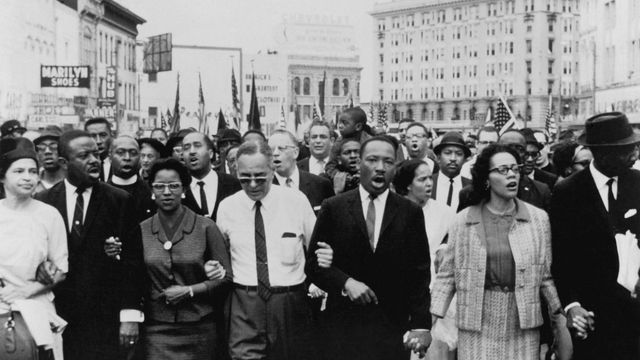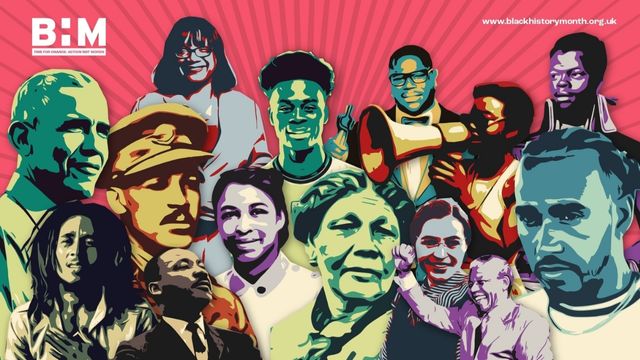Celebrating a Decade of Progress: Black History Month 2023
As we celebrate a decade of progress in Black History Month 2023, it is a time to reflect on the immense accomplishments that the African American community has made in the past ten years. From the election of the first Black president to the fight for racial equality, the past decade has seen immense progress for the African American community. As we look ahead to the future, we can take pride in the way that the African American community has taken the lead in driving social change and advancing equality. From the arts and culture to politics and business, the African American community has continued to break down barriers and make a real impact on society. Let’s take a moment to celebrate the tremendous progress that the African American community has made in the past decade, and look ahead to the future with hope and optimism.
History of Black History Month

Black History Month is an annual observance in the United States and Canada, dedicated to the celebration of the accomplishments and history of people of African descent. It is observed in February in the United States and in October in Canada.
The history of Black History Month dates back to 1926 when the historian Carter G. Woodson and the Association for the Study of Negro Life and History announced the second week of February would be “Negro History Week.” At the time, this was the only national holiday for African-Americans. The goal of this week was to raise awareness about the contributions made by African-Americans to the United States.
In 1976, the bicentennial of the United States, the celebration was expanded to the entire month of February and was officially designated as “Black History Month” by President Gerald Ford. From there, Black History Month has grown to become a celebrated part of the United States cultural landscape. This month is often marked by conferences, festivals, art exhibitions, and other activities.
These activities are meant to honor and celebrate African-American culture and its contributions to the United States. Today, Black History Month is an opportunity for people to reflect on the progress that has been made since the days of segregation and to celebrate the many successes and accomplishments of African-Americans. It is also a time to learn more about the history and accomplishments of African-Americans, and to explore ways to build a better, more united society.
Celebrating Black History Month
As we celebrate Black History Month, it is important to recognize and celebrate the accomplishments, culture, and history of African Americans and other people of color. It is also important to recognize the unique challenges that confront the Black community.
The African American community has a history of facing discrimination, prejudice, and other forms of oppression. From slavery to the Jim Crow laws, African Americans have fought and continue to fight for equality and justice. During Black History Month, we have the opportunity to not only reflect on the past but also look forward to a brighter future.
The history, culture, and achievements of African Americans can be seen in many aspects of our society, from music to art to business and politics. We must remember and honor the contributions that African Americans have made, both to our nation and to the world. To honor the accomplishments of African Americans, we should highlight the contributions of African Americans in our classrooms, workplaces, and communities.
It is also important to recognize and discuss the current issues facing the Black community. These issues include racism, economic inequality, and access to quality education and healthcare. We must work together to address and eliminate these disparities and ensure equal opportunities for all people.
Finally, we must support Black-owned businesses. We should buy from Black-owned businesses, and we should invest in businesses owned by African Americans. Supporting Black-owned businesses will create more jobs and help create a more equitable and prosperous future for all.
Black History Month is an important time to remember and honor the history, culture, and accomplishments of African Americans. We should use this time to celebrate the progress and achievements of African Americans and learn more about the unique challenges they face. Additionally, we should work together to ensure that African Americans have access to the same opportunities as everyone else. Finally, we should support Black-owned businesses and invest in businesses owned by African Americans. Doing so will help create a more equitable and prosperous future for all.
>> Read more: Uncover the Inspiring History of Black Excellence with These 10 Black History Month Activities
Spotlight on Leaders

The past decade has been a decade of unprecedented progress for the Black community. From the election of the first Black president, Barack Obama, to the emergence of powerful voices like Black Lives Matter, Black communities around the world have made significant strides in the fight for racial justice and equality.
At the same time, many inspiring Black leaders have emerged over the past 10 years, setting a powerful example for the current and future generations. These influential figures have challenged systems of oppression, advocated for social justice, and inspired the Black community to continue to fight for progress and equity.
One of the most influential leaders in the Black community over the past decade has been Rev. Dr. William J. Barber II. He has been a leader in the fight against systemic racism and injustice through his activism and his leadership of the Poor People’s Campaign. The Poor People’s Campaign was a national movement that brought together people of all races and backgrounds to fight for economic and social justice. Through the campaign, Rev. Barber called attention to the intersection of racism, poverty, environmental destruction, and militarism, and pushed forward a moral agenda for the nation.
Another influential Black leader over the past decade has been Bree Newsome. She is an artist, activist, and filmmaker who has used her platform to bring attention to racial justice and civil rights. In 2015, she famously climbed a flagpole at the South Carolina State Capitol and removed the Confederate flag in protest of racism and white supremacy. Her activism has inspired other activists to take similar actions, and her bravery has helped to bring conversations about racism to the forefront of the national dialogue.
The past decade has also seen the emergence of powerful Black female leaders. Tarana Burke, the founder of the #MeToo movement, has brought attention to the issue of sexual assault and harassment, particularly in communities of color. She has worked to make sure that survivors of sexual assault are supported and that those accused of sexual assault are held accountable.
Congresswoman Maxine Waters has been an iconic figure in the Black community for the past decade. She has been a leader in the fight for economic and racial justice, advocating for the rights of the Black community and other marginalized communities. Her tireless commitment to justice and equity have made her an important role model for the current and future generations.
The past decade has seen the emergence of many inspiring leaders in the Black community, who have helped to challenge racism, push for progress and equity, and inspire the current and future generations. From Rev. Dr. William J. Barber II to Tarana Burke to Maxine Waters, these influential figures have been essential role models in the Black community, and their efforts will be remembered for generations to come.
Events Celebrating Black History Month
As we enter Black History Month, it is important to celebrate the meaningful contributions that African Americans have made to our country. This is a great time to come together and honor the achievements of the African American community.
There are many different types of events that can be held to honor Black History Month. Cultural events are a wonderful way to understand more about the history and culture of African Americans. It can include performances, art exhibits, lectures, music, and more. These activities help to provide a deeper understanding of the African American experience and its impact on our culture.
Educational events are also a great way to educate people about the significant contributions that African Americans have made to our society. This can include classes, lectures, and workshops that discuss achievements and issues related to the African American community. It is also a great way to learn more about our shared history and the struggles African Americans have faced throughout U.S. history.
Fundraising events are also an important part of Black History Month. These events can help raise money for various causes, ranging from helping the homeless to providing scholarships for African American students. These events are a great way to show support for the African American community and make a difference in the world.
No matter what kind of event you attend or plan for Black History Month, it is important to remember the importance of honoring the accomplishments and contributions of African Americans. It is a time to come together and recognize the amazing people that have made such a tremendous difference in our world.
Honoring Black History Month’s Legacy
Black History Month is a time to reflect and recognize the contributions of African Americans throughout history. It is a time to remember the past and celebrate the progress that has been made. From the fight for freedom and civil rights to the accomplishments of Black leaders, innovators, and artists, Black History Month offers an opportunity to honor Black pioneers and celebrate their contributions to history, art, music, and literature.
The legacy of Black History Month is rooted in the idea of remembering and honoring those who have helped shape this nation into the diverse and innovative society it is today. From the enslaved Africans who were forcibly brought to the United States, to the civil rights pioneers who fought tirelessly for equality, to the contemporary Black activists who are pushing for social and political change, Black history is an integral part of the American story.
The first celebration of Black History Month was initiated in 1926 by Carter G. Woodson, an African American historian, scholar, and educator. Woodson believed it was important to recognize the contributions of African Americans to American history, and he established what he called “Negro History Week.” As the years passed, this recognition grew into a month-long recognition of African American history.
Throughout the month of February, we honor Black pioneers who have changed the course of history. We celebrate their courage and resilience in the face of injustice and discrimination. We also remember their accomplishments, from the abolition of slavery to the election of the first African American president.
In addition to honoring Black pioneers, we celebrate Black art, music, and literature. These forms of expression offer powerful stories of resistance and resilience against injustice, and they provide essential insights into the African American experience. From the powerful sermons of Dr. Martin Luther King Jr. to the political and social commentaries of Black writers such as James Baldwin and Toni Morrison, Black art, music, and literature offer unique perspectives on the African American experience.
This Black History Month, let us remember and honor the Black pioneers who have shaped and changed history. Let us celebrate their accomplishments and the progress that has been made. And let us recognize the power of Black art, music, and literature to tell the stories of African Americans and to move and inspire us all.
Key Achievements Of Black History Month
Black History Month is an annual celebration of the achievements, contributions, and history of African Americans. This month-long celebration highlights the accomplishments of African Americans in education, economic empowerment, political representation, and social justice.
Education
During Black History Month, we celebrate the accomplishments of African Americans in the field of education. From Frederick Douglass, who became the first African American to earn a bachelor’s degree, to Booker T. Washington, who founded the Tuskegee Institute, African Americans have made great strides in education. This month, we honor those who have worked hard to bring educational opportunities to African Americans.
Economic Empowerment
Black History Month also celebrates African Americans’ contributions to the economic success of the United States. From the first black-owned bank, The Freedmen’s Bank of North Carolina, to the first black-owned insurance company, North Carolina Mutual Life Insurance Company, African Americans have long been a part of economic success. This month, we honor those who have worked hard to create economic opportunities for African Americans.
Political Representation
Throughout history, African Americans have fought for political representation in the United States. From the first African American congressman, Joseph Hayne Rainey, to the first African American senator, Hiram Revels, African Americans have worked hard to have a voice in government. This month, we recognize the efforts of those who have fought for political representation.
Social Justice
Black History Month also celebrates the accomplishments of African Americans in the fight for social justice. From W. E. B. Du Bois, who founded the National Association for the Advancement of Colored People (NAACP), to Martin Luther King Jr., who led the civil rights movement, African Americans have worked hard to achieve social justice. This month, we honor those who have pushed for social justice and equality.
Black History Month is an important time for reflection and celebration. It is an opportunity to learn about the accomplishments of African Americans and to recognize the progress that has been made. As we celebrate the achievements of African Americans, let us also remember to strive for equality in education, economic empowerment, political representation, and social justice.

